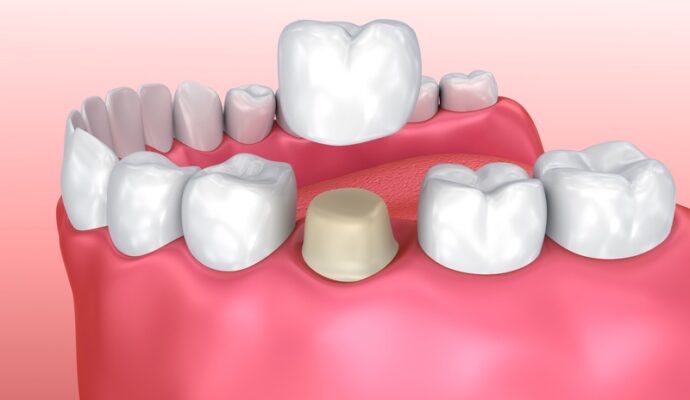Dental implants have revolutionized restorative dentistry. These small but mighty fixtures act as the roots for replacement teeth. They are embedded directly into the jawbone, offering a strong foundation for permanent or removable replacement teeth. But how do we compare different options to ensure comfort and functionality?
How Do Dental Implants Work?
Dental implants are designed to mimic the form and function of natural teeth. They’re made of titanium and other materials compatible with the human body. The implant fuses with the jawbone over time, a process known as osseointegration. This ensures that the implant stays firmly in place, just like a natural tooth root would.
Different Types of Dental Implants
Various types of dental implants are available to cater to different needs:
-
Endosteal Implants: These are the most common type, surgically placed into the jawbone.
-
Subperiosteal Implants: These are placed under the gum but on or above the jawbone, suitable for patients who lack sufficient jawbone height.
-
Zygomatic Implants: These are an option when there is significant bone loss in the upper jaw.
The All-On-4 Approach
One significant innovation is the All-On-4 solution. Instead of needing a single implant for each missing tooth, this method supports a full arch of teeth with just four strategically placed implants. The all-on-4 dental implants are ideal for those seeking full-arch restoration without extensive surgeries or long recovery times. Plus, they often allow for a quicker return to your everyday routine.
Comfort and Functionality Factors
When considering dental implants, both comfort and functionality are paramount. Implants should feel natural and stable while providing the strength needed for daily functions like chewing and speaking.
The Comfort Element
-
Nerve Consideration: Implants should be placed with care to avoid nerve interference.
-
Tissue Compatibility: Materials used in implants must be biocompatible, reducing the risk of discomfort or allergic reactions.
Functionality Insights
Functionality is all about efficiency and resilience. Implants must provide the following:
-
Durability to withstand daily tasks without constant failure.
-
Stability that ensures no movement or shifting when in use.
-
Adaptability to fit lifestyle needs and oral structures.
Comparing with Traditional Options
Many people wonder how implants compare to traditional solutions like bridges or dentures. The truth is that implants provide a more lasting solution with fewer long-term issues.
What Are Implant-Supported Dentures?
For those not ready for full dental implants, there’s an alternative known as implant-supported dentures. These dentures are anchored to implants, providing better stability compared to traditional dentures. They resolve common issues like slipping and discomfort, offering a secure fit that enhances speaking and eating.
Understanding the Costs
Cost is a significant factor in dental care, along with comfort and function. Although dental implants can be more expensive than other solutions initially, their longevity and limited need for repairs make them cost-effective over time.
What Affects the Cost?
Several factors influence the pricing of dental implants:
-
Location: Regional differences can impact costs significantly.
-
Materials: The type and quality of materials used affect the price.
-
Surgical Needs: Additional procedures, like bone grafting, add to the cost.
Location-Specific Pricing
For example, the dental implant cost in Tustin varies based on local economic factors, the dental practitioner’s expertise, and the specific materials used. Being informed helps in making a cost-effective decision while ensuring quality.
Long-Term Benefits of Dental Implants
Implants are not just about replacing missing teeth; they contribute to overall oral health. By fusing with the jawbone, they help preserve bone integrity and prevent deterioration that typically accompanies tooth loss.
Boosting Confidence
Aside from health benefits, dental implants increase confidence. Their natural look and secure fit allow individuals to smile, eat, and speak without hesitation. The psychological impact is significant, often leading to improved social interactions and self-esteem.
Choosing the Right Dental Professional
Selecting an experienced dentist or oral surgeon is crucial for successful dental implant procedures. Here’s what to consider:
-
Experience and Credentials: Ensure the practitioner has specialized training and a track record of successful implant surgeries.
-
Patient Reviews and Recommendations: Look for testimonials or seek recommendations from previous patients to gauge satisfaction levels.
-
Consultation and Communication: A thorough consultation can help set expectations. A professional who listens and addresses concerns fosters trust and confidence in the procedure.
By choosing the right dental professional, you enhance the likelihood of a comfortable, successful implant experience.
Is It Worth It?
Ultimately, are dental implants worth considering? For most, the answer is a resounding yes. While the initial investment might seem steep, the durable and lasting benefits far outweigh the costs. Convenience, enhanced quality of life, and improved oral health create a compelling argument for choosing implants over traditional alternatives.
Final Thoughts
While the journey to getting dental implants might seem daunting, the rewards are substantial. From increased comfort and functionality to improved confidence and oral health, dental implants offer a comprehensive solution for tooth loss. Whether considering options like implant-supported dentures or understanding local costs in places like Tustin, making an informed choice with the help of a dental professional ensures a smile that not only looks good but feels good, too.




